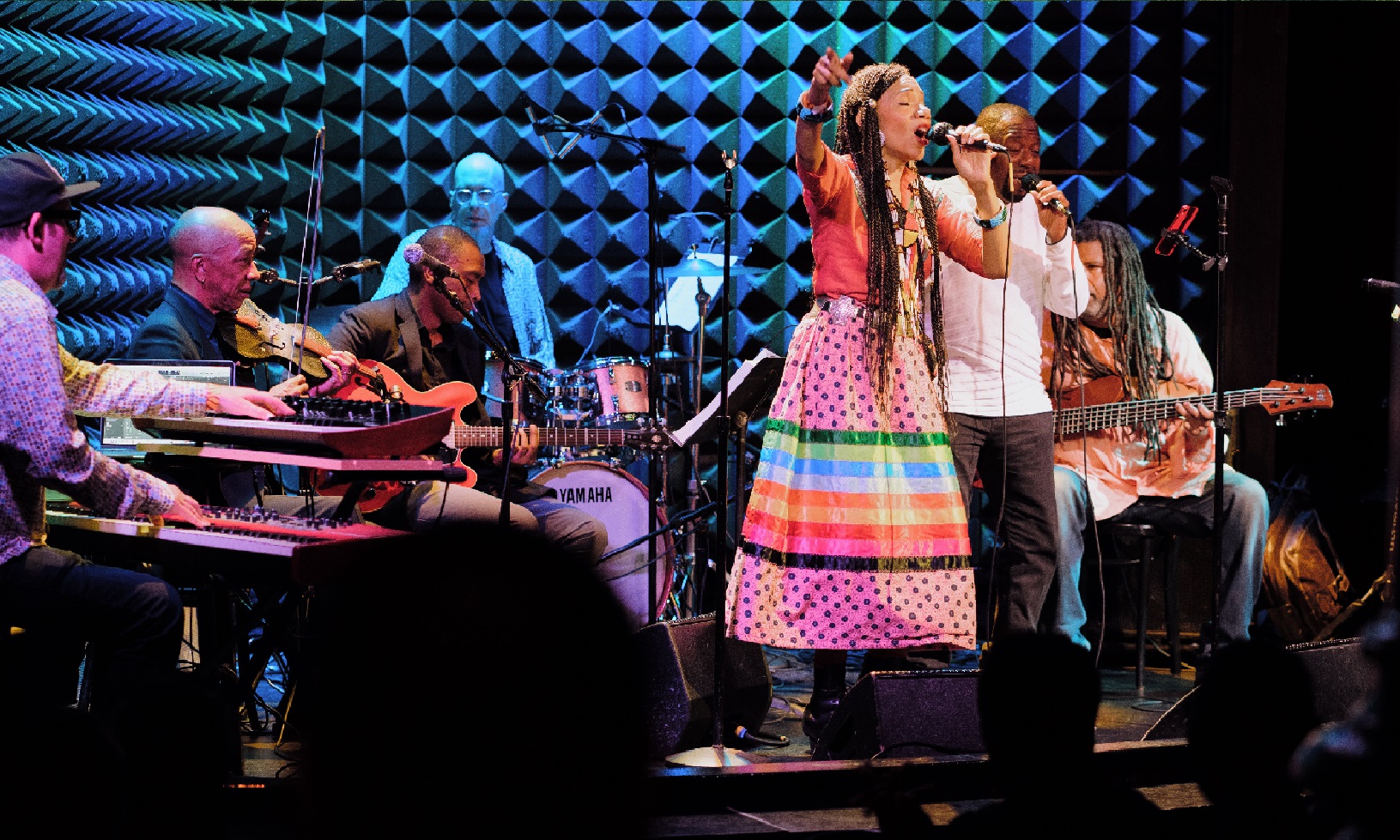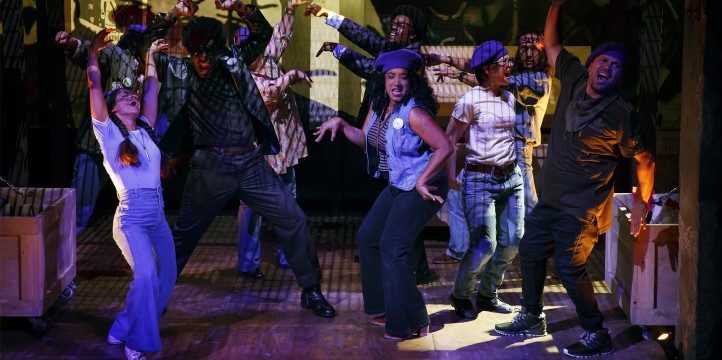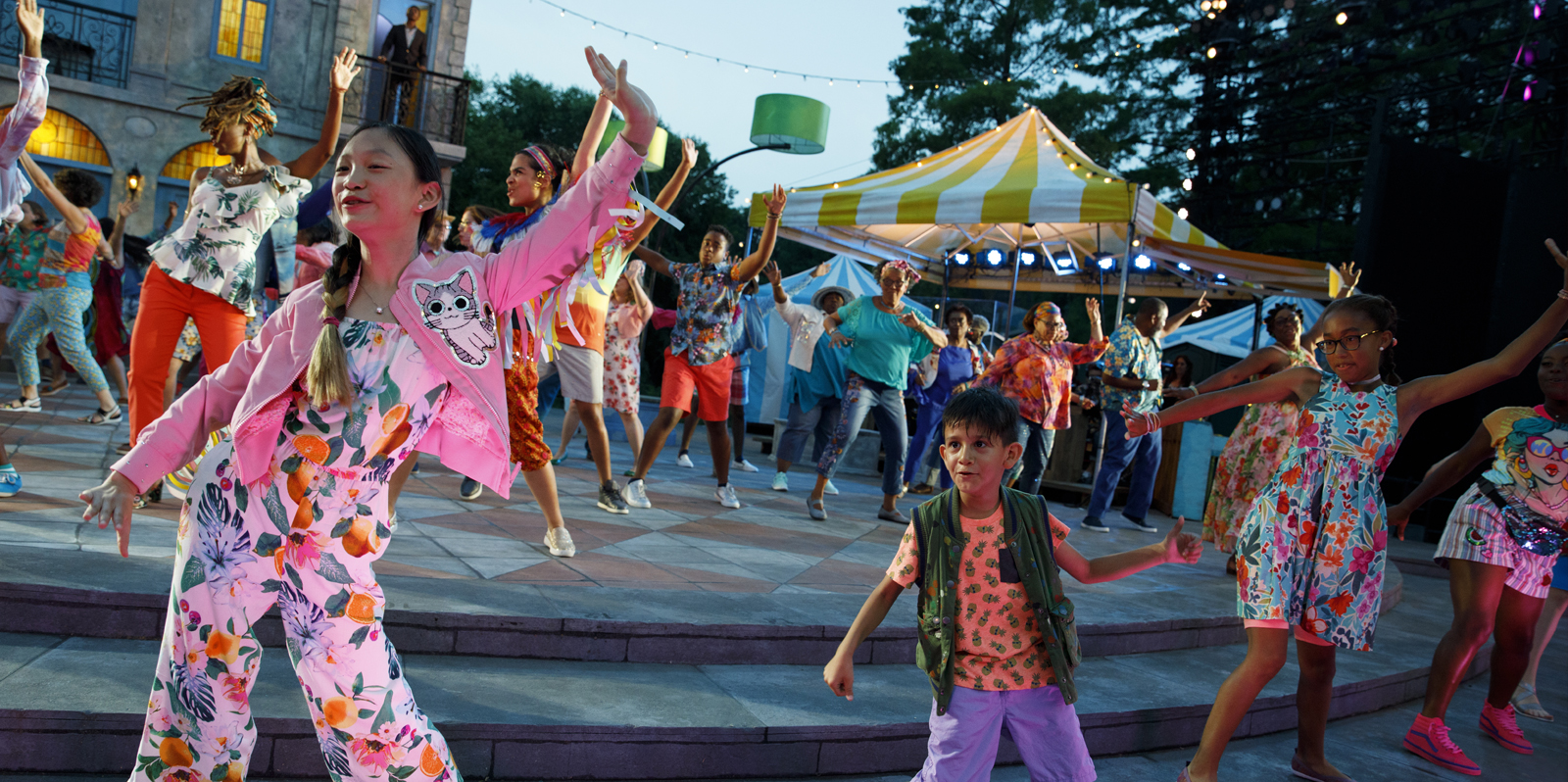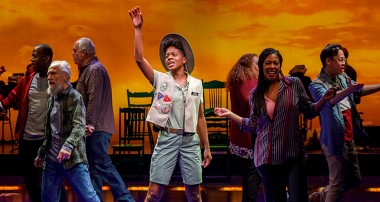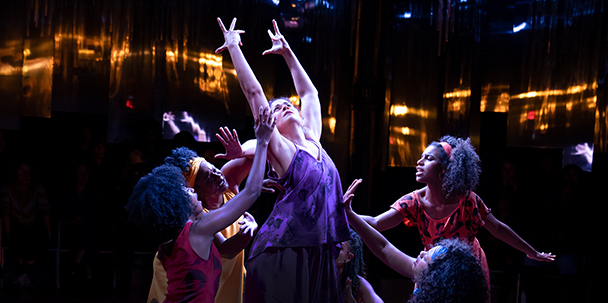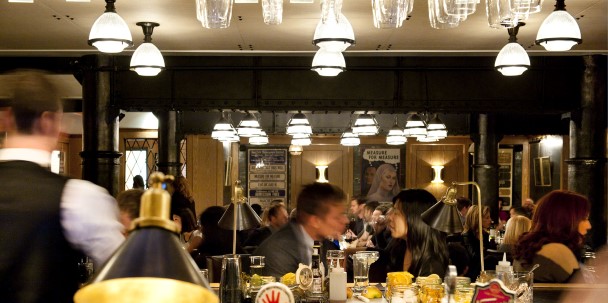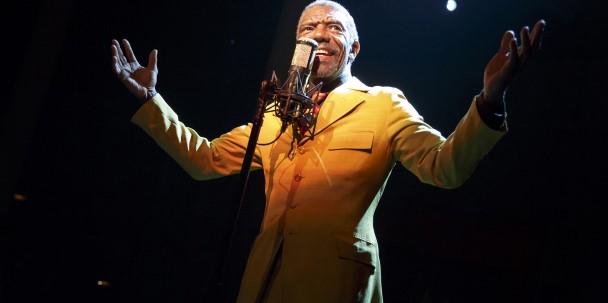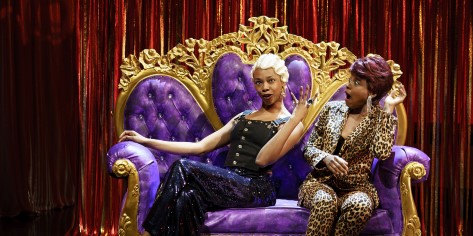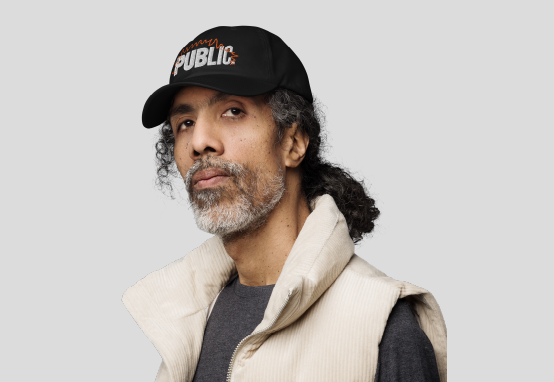YL: I graduated, and then I did like, two more shows after that, where people knew me, and then I stopped. I was too chicken to do an open mic. I was too scared to do a bringer show. The people who go out so many times a week, and just grind it out at night, I think that's amazing, and I wish I was strong enough to do it. But I never did it. I was younger then, and I think, looking back, I was myself. But it was a time when it was still valid to be like, “Oh, that comedian is a woman and she's funny.” Now that's so outdated—what a ridiculous thing—and there are many more women in that space now. But back then there was a whiff of that still, in the air. It was different. And then you're kind of thinking, what kind of “woman” presence am I going to be? What box am I going to fit into? Am I the crazy aunt? Or am I going to try to be attractive, conventionally?
I do remember how great it felt to get a laugh. It was like drugs, just euphoria, like, “I'm full, I'm full!” And then it fades so quickly, like, “I need more!” I totally remember that. But ultimately it was a lifestyle I could never take. What were your thoughts about it?
AR: I think I probably did the same amount of experimentation that you did. I just thought it would be a good idea to try. And the shows that I did were bringer shows, which was somehow even more painful than asking friends to come to a show with a $60 ticket, as we do in the theater. Saying, well, there's a $15 cover, and you're gonna have to buy two cokes, and both of the cokes, at least, if you don't buy alcohol, are gonna cost like $13 a piece. It was just terrible. The first time I went was beginner's luck, and it was really fun, and the laughs were euphoric, like you said. The second time, it felt like diminishing returns. The rehearsal process made me feel crazy, because you really do have to memorize. It's a great exercise to try to write a monologue that sounds like totally vernacular, off-the-cuff speech, and then to deliver it, memorized, as if it were off-the-cuff. But the rehearsing made me feel crazy, just repeating my internal monologue to myself over and over again. How did you find the rehearsal aspect of it?
YL: That's so interesting, I'd like to explore that with you more. It sounds like you were writing plays in the theater and then you tried stand-up?
AR: No. I took an improv class and met a lot of funny people and was just kind of exploring. I thought about comedy before I ever really thought about playwriting.
YL: I didn't know that. That's so interesting, as an entryway.
AR: What do you think steered you away from comedy? Or, away from comedy proper? Because your writing is hilarious. But what do you think made you want to be a dramatist?
YL: I don't know if it was a series of rational, deliberate decisions. It was more like, I don't have whatever it takes to grind it out as a stand-up. I think if I were more desperate, I could have. I think you kind of almost have to feel that, to do something so scary. But I didn't. So I think that's why. After that, I took an improv class. And then I did a sketch-writing class. I did more sketch-writing. And I guess I was inching my way more towards playwriting.
It's interesting when you say you're trying to make it sound like it's not memorized, but it is. I wonder if it's like a bigger lie, because the posturing of intimacy is bigger doing stand-up than doing a play, where it's like, “Yeah, of course, it's not real.” Stand-up is more sleight-of-hand-y.
AR: You're right. You're really forced to confront the artificial nature of communication when you're rehearsing a stand-up set.
YL: Yeah you feel crazy. I remember just sitting on my stoop in the early morning, saying my set over and over.
AR: I wondered from your play if you've ever gone down the rabbit hole of more experimental, Andy Kaufman-type alt comedy. Ria's stand-up sets delve into a variety of styles. Do you have favorite comedians or favorite sub-genres of stand-up?
YL: To the question of more out-there, Andy Kaufman-type humor, I appreciate and respect that a lot. But I feel like I can only take it in small doses, and then I need something more human, I want to say, or grounded. I can't live in that realm for a very long time.
I did want Ria to experiment with different sub-genres, because she doesn't really know who she is. Some common advice for stand-ups is, “Don't try to be anyone else, because there's only one you,” but that's easier said than done, especially for someone who doesn't know who they are.
I think as I mature, I appreciate comedy that addresses that the world is really scary and messed up, and feels increasingly so. There's comedy that's very funny and almost gentle, where we don't have to talk about things we can't solve, that's talking about things that are more safe, and perennial, like mortality. Which like, yeah, that's deep—but it's also kind of safe, considering the world as it is now. So I appreciate when people touch upon how the world is more messed up. I like that more and more. It's so strong that we can acknowledge it, and still laugh, genuinely. I think that's a more beautiful feat.
AR: I totally see that distinction. I think you're right.
Speaking of the world as it is now, I loved the engagement with YouTube tutorials, and how painful it was to witness the characters learning about beauty from a little person on a screen, a stranger. Or conventional ideas about beauty. It made me reflect on how identity, and one's sense of self, right now, are so mediated through all of these different fragmented voices and mediums. What inspired that? Do you watch a lot of YouTube, or have friends who do?
YL: I don't anymore, but there was definitely a phase where I watched YouTube beauty and wardrobe things all the time. It's weird because—before YouTube, and the internet, if you were seeking advice from a stranger, it was because that person was wise. They were older than you, they'd been okayed by their publisher or agent, or had a book, or gave a speech that you saw. But for me, watching YouTube videos like ten years ago, I was seeing girls who were younger than me. Still in high school! There's a part of you that's just like, “Aww, a little girl!” But then they know this thing, this skill, that I'm trying to learn. And I'm like, “Fine, I'll take off my big-sister hat, and just show me that.” I don't know if that answers your question, but I think it's an interesting dynamic, the young expert.
AR: Our conversation is really illuminating how powerful your title is, This Could Be You. Because it really seems to be a play about people looking to other people to tell them who they are, or to help them find themselves. And it's easy to do that nowadays, with so many people of all ages claiming authority on the internet. But then it's also easy to get lost, as happens with Michelle, the conservative mouthpiece at the end of the play. And you do such a great job of satirizing both poles of the mainstream culture war. Maybe satirizing is too reductive a term. But you capture different sides of the current discourse in a complicated, profound and comedic way. I'm thinking of when you talk about stereotypes, and Netflix shows that sort of purport to be modern and contemporary and diverse, but still buy into really limiting visions of people of color. A corporate-friendly, pop wokeness that lends itself to commodification. And then this sinister right-wing movement that we're seeing now, that's struggling to find relevance. How consciously did you think about politics when you were writing?
YL: It was a framing device from the beginning. I wanted at least one person to go from one end of the spectrum to another in some fashion. It was Ria, of course, but I hope Gloria, too—I think Ning opens her up a little tiny bit. But originally, in my mind, it was even more pointed. Yes, I think politics were on my mind.
AR: The play is so focused and thematically disciplined. But at the same time, it's really capacious, and so I just had a lot to react to. And I wondered, to sort of pivot, if you wanted to talk a bit about the character's mother's memory loss, and dementia, that really painful theme in the play.


